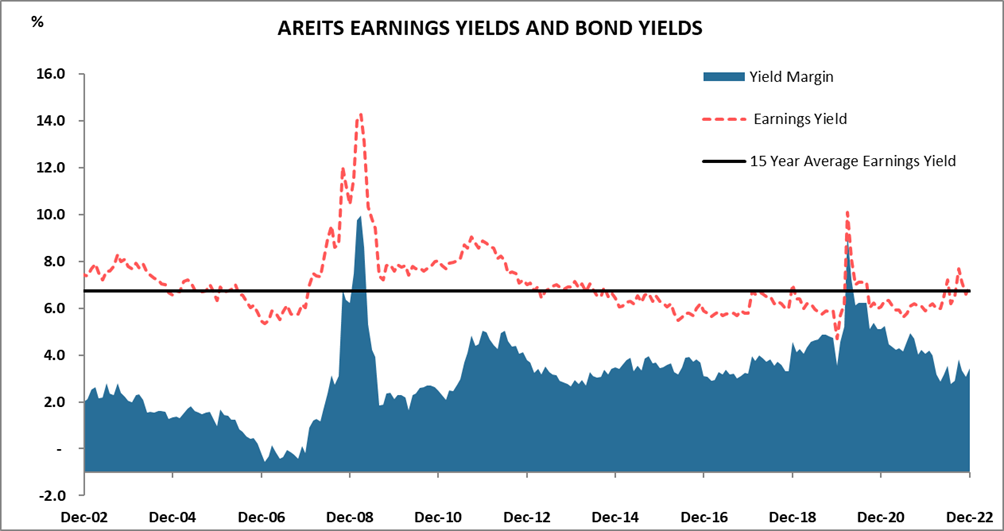By Chris Owens, analyst, Atchison Consultants
By Chris Owens, analyst, Atchison Consultants
Australian real estate investment trusts (AREITs), as represented by the S&P/ASX 200 AREIT Index, returned -4.1% in the month ending 31 December 2022. AREITs underperformed the S&P/ASX 200 return by 0.9% over the month.
Over the 12 months to December 2022, AREITs posted a total return of -14.1%, underperforming the S&P/ASX 200 return of -2.0%.
Sector Performance
Table 1 below shows the performance of AREITs for various periods ending 31 December 2022.
Table 1 – S&P/ASX 200 AREIT Accumulation Index Performance: Total Returns (31 December 2022)
Over the 3 years and 5 years to the end of December, the sector produced total returns of 4.8% and 7.2% per annum respectively.
Sector returns were led by Office AREITs which produced a return of 0.0%. Retail AREITs were next with a return of -2.4%, while Diversified AREITs returned -3.9% and Industrial AREITs returned -8.1%.
Table 2 below shows the income performance of AREITs for various periods ending 31 December 2022.
Table 2 – S&P/ASX 200 AREIT Accumulation Index Performance: Income Returns (31 December 2022)
The income component of the total return was 4.4% for the 12-month period to December. Annual volatility of income returns was 1.6%, which is low when compared with other asset classes.
AREITs were trading at an earnings yield of approximately 7.0% at the end of the month, higher than yields of both cash and Commonwealth Government bonds. However, the spread of the earnings yield over the 10-year government bond yield rose to 3.4%.
Changes over time of the spread between the earnings yield of AREITs and the 10-year government bond yield are shown in Chart 1.
Market Review
For the year to December 2022, the ASX 200 ARIET index fell 20.5%, underperforming the ASX 200 by 19.4%.
Analysts predict significant gains in the sector despite the economic uncertainties since a large portion of the pain has already been included into property prices and because the cycle of rate increases is projected to ease by the middle of the year.
According to Jefferies Financial Group, we can expect AREITs to outperform the market in the second half of the year as rates stabilise. The group continued by predicting strong performance from alternative AREITs, non-discretionary retail, and industrial in 2023. Office, residential and discretionary retail likely to underperform.




